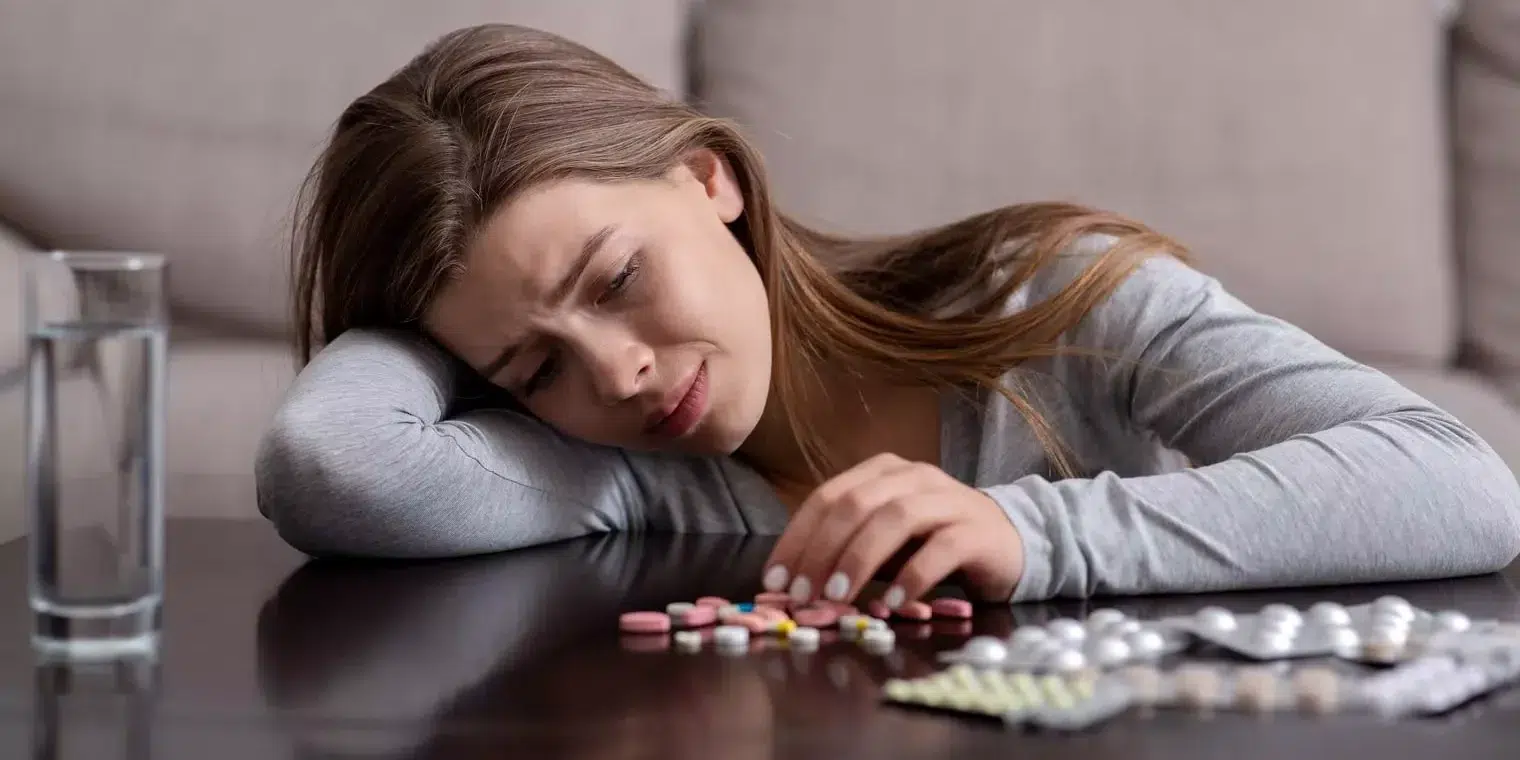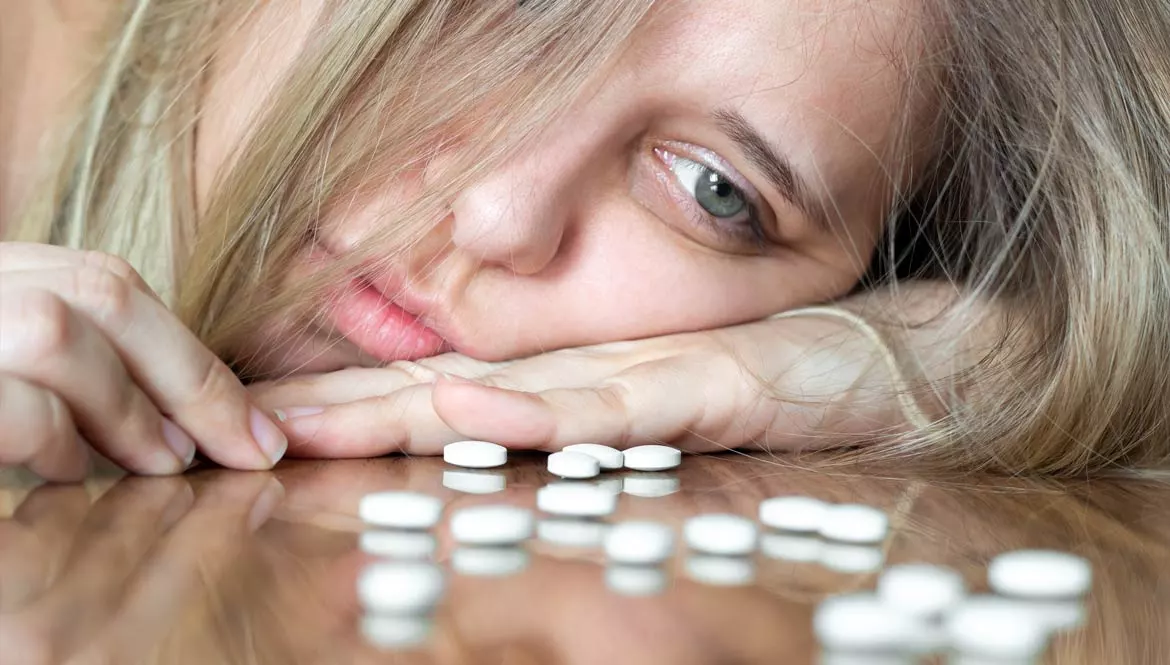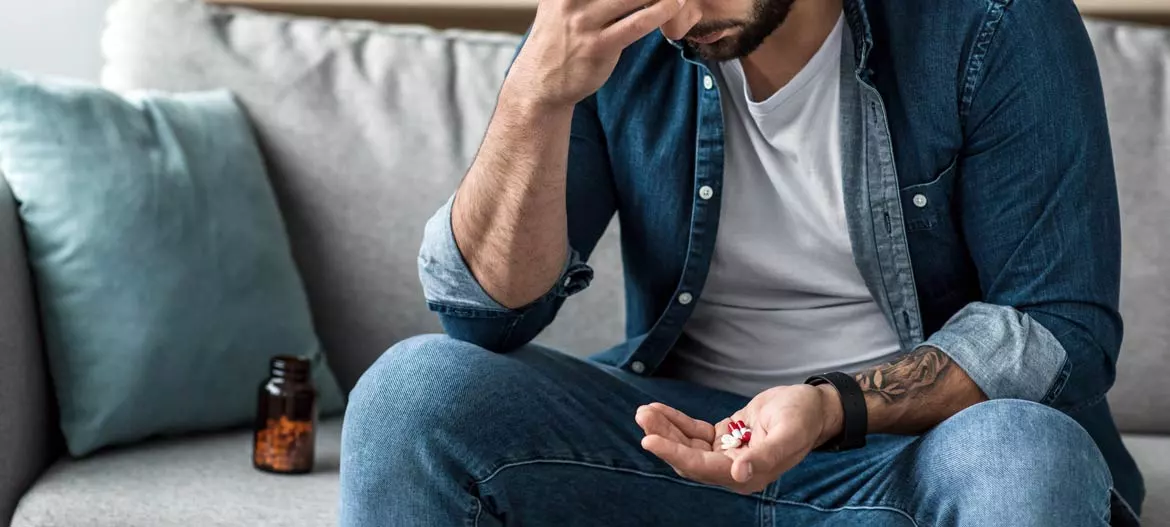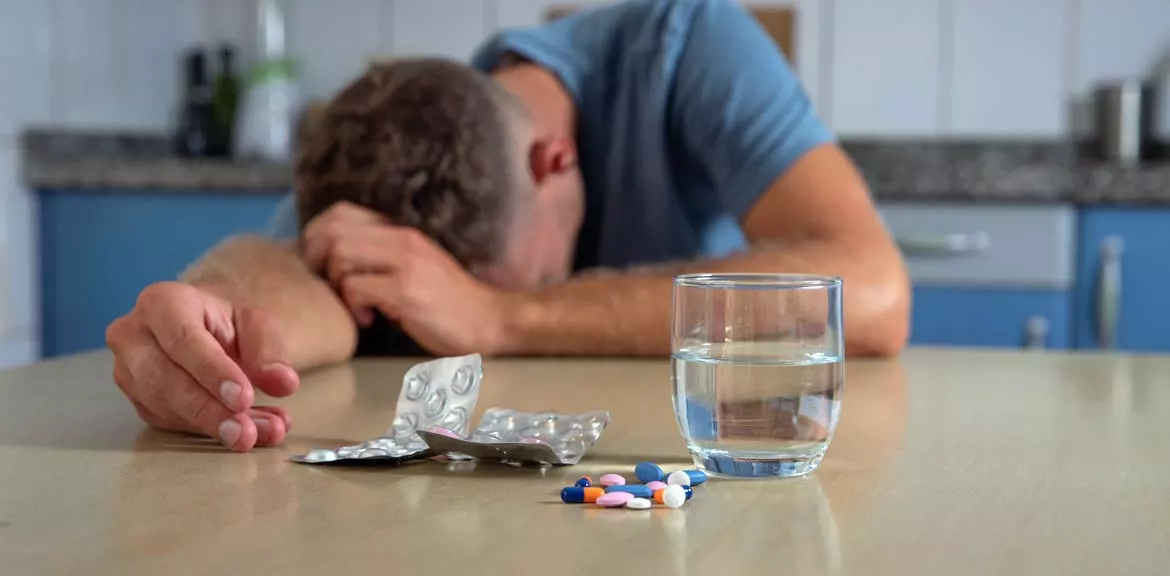Contrary to popular belief, addiction to antidepressants does not occur in the same way as addiction to other controlled substances. In contrast to the abuse of many other medications, antidepressant abuse is not associated with the same levels of cravings, euphoria, addictive behaviors, or harmful repercussions.
Even in cases when the medication is initially helpful, antidepressant dependency can develop. Antidepressants are sometimes supplied to the wrong persons after a false diagnosis of depression. One research found that nearly two-thirds of individuals with depression were incorrectly diagnosed by clinicians, leading to the inappropriate use of antidepressants.
Keep reading to find out how Emerald Isle Health and Recovery can help if you find yourself in an unpleasant dependency on such medications and the best ways of addressing the issue!
Over-Medicated and Misdiagnosed
Table of Contents
According to the National Institute of Mental Health (NIMH), 3.3% of adolescents will develop a depressive illness by the time they are 18, with girls being at a higher risk than boys. Long bouts of crippling sadness that prevent the sufferer from carrying out their usual activities are diagnostic of depression.
Many claim the benchmark for diagnosis is set way too low. After only two weeks of experiencing symptoms, a diagnosis of depression can be made, and antidepressants prescribed.
About 40 million individuals in the United States, or 18 percent, suffer from some form of anxiety illness. The Anxiety and Depression Society of America report that these are the most prevalent mental illness issues in the United States (ADSA). This category includes illnesses such as obsessive-compulsive disorder (OCD), social anxiety disorder (SAD), phobias, post-traumatic stress disorder (PTSD), and other mood disorders.
Free Mental Health Assessment
According to ADSA, around 50% of people with anxiety disorders also experience depression. According to data released by the Centers for Disease Control and Prevention (CDC), antidepressants, which are used largely to treat depression and anxiety disorders, are the third most often used class of prescription drugs in the United States.
Antidepressants, like any other medicine or prescription, can have undesirable effects and carry certain risks. According to the CDC, 14% of Americans who are now taking antidepressant drugs have been doing so for 10 years or more, and less than 33% of those on just one antidepressant had visited a medical professional face to face in the last year.
According to NIMH, around 80% of people on antidepressants do not get them through a psychiatrist. This number is absolutely staggering. Long-term prescription use, especially in the absence of close medical monitoring, regular checkups, and treatment by licensed medical experts, can result in tolerance, dependence, and eventual addiction.
In What Ways Do Antidepressants Work?
Medication for treating moderate to major depressive disorder is called antidepressants. Selective serotonin reuptake inhibitors (SSRIs) and serotonin and norepinephrine reuptake inhibitors (SNRIs) are the two most widely used classes of antidepressants.
Antidepressant SSRIs work by readjusting the serotonin levels in depressed patients’ brains. People’s moods are lifted, and they experience an overall sense of happiness after taking this substance. In a similar vein, SNRIs work through mood elevation via interactions with the neurotransmitters norepinephrine and serotonin. Antidepressants are also used to treat OCD and GAD, two forms of anxiety disorders, by doctors.
Antidepressant Interaction In the Brain
It is well accepted that antidepressants operate by altering the activity of neurotransmitters in the brain. The release of neurotransmitters like serotonin and dopamine has a role in maintaining a happy frame of mind and experiencing pleasant feelings.
Blocking their reabsorption is a common mechanism by which antidepressants improve mood by altering the brain’s chemical equilibrium. Antidepressants can boost the synthesis of these substances in the brain, which may be decreased in depressed people or those with mental illness.
According to the Royal College of Psychiatrists, antidepressant medication is effective in treating moderate to severe depression between 50 and 65 percent of the time after three months of treatment.
Due to the potential for adverse effects and dietary restrictions associated with tricyclics and MAOIs, most prescribers are shifting their focus to SSRIs instead. Since depression frequently occurs in parallel with other illnesses, particularly anxiety disorders, other drugs, such as benzodiazepine anti-anxiety medications like Valium and Xanax, may also be taken in tandem with antidepressant medications.
If this is mishandled or not closely monitored, it might lead to a rise in possible adverse consequences and risk factors.
Classes of Antidepressants
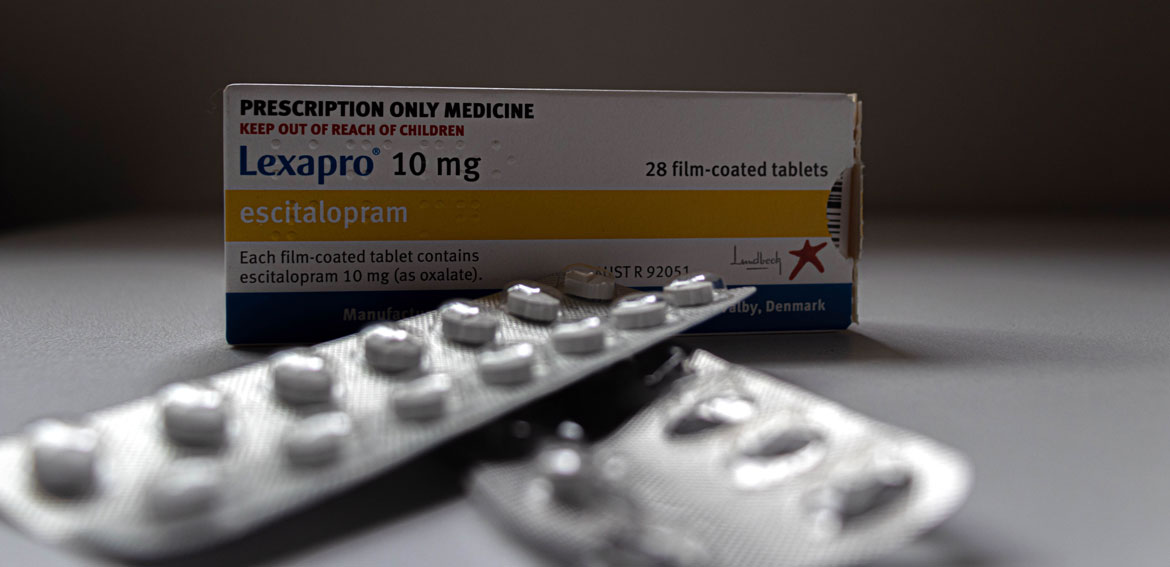
The following section contains the medications that are the most often prescribed classes of antidepressants:
SSRIs
- Prozac
- Paxil
- Lexapro
- Serafem
- Celexa
- Luvox
- Zoloft
MAOI
- Manerix
- Marplan
- Emsam
- Parnate
- Nardil
SNRI
- Effexor
- Cymbalta
- Pristiq
Prescription Drug Medical Help – Call 24/7
The Difference Between Antidepressant Addiction and Dependence
Regular usage of an antidepressant drug can lead to a condition of adaption known as “dependence.” If an antidepressant user suddenly stops or reverses their dosage, they may suffer withdrawal symptoms.
Addiction to antidepressants is a primary, chronic, neurobiological condition that is affected by genetic, behavioral, and environmental variables. It’s characterized by actions like these: poor control over drug use, obsessive usage, and continuing use despite physical and mental damage. Relapse is typical in those recovering from drug addiction, even though the condition may be treated.
Can SSRI Addiction Develop?
The pharmacological characteristics, especially the addictive tendencies of SSRI medicines and other antidepressants, are the subject of much debate. Substance addiction, including pharmaceutical medicines that interact with antidepressant prescriptions, is known to change the brain’s chemical constitution and disrupt proper neurotransmitter development.
Abuse of illegal substances and excessive drinking can cause a person to become physically and psychologically reliant on them in order to maintain a sense of equilibrium and normalcy. When the desire to misuse a substance takes over and an inordinate amount of time is spent obtaining, consuming, and recuperating from the effects of that substance, that person may develop an addiction.
Several myths exist regarding SSRIs and other antidepressants. In contrast to other medications, such as benzodiazepines, they do not appear to cause the same degree of euphoria or intoxication. In contrast to popular belief, illegal antidepressant medicines do not provide euphoria since SSRIs strive to restore neural balance rather than merely heighten positive emotions.
Doctors are nearly unanimous in their view that antidepressants do not have the hallmarks of classic addictive substances. Symptoms upon stopping or reducing the dosage of an antidepressant are evidence that these medications might cause physical dependence. Antidepressant withdrawal can cause a return of the original symptoms, such as nausea, tremors, and sadness if the medication is suddenly stopped.
The Criteria for an Addiction Diagnosis
Tolerance and drug-seeking behaviors are required for a diagnosis of addiction; however, these phenomena do not appear to develop with SSRIs. Dependence on SSRIs, which can occur with prolonged usage, can result in unpleasant symptoms when the drug is no longer taken.
Many people confuse this with real addiction. Studies have shown that selective serotonin reuptake inhibitors (SSRIs) can lead to physical dependency and withdrawal, although this has not been proven.
Insomnia, nausea, altered sense of touch, and what can only be described as “electric shocks in the brain” are among the symptoms associated with coming off of an SSRI.
Whether or not antidepressants and SSRIs are officially classified as addictive, those who suffer from depression and use these drugs for extended periods of time may benefit from addiction and mental health therapy. Regardless of how the dependence came about, the best way to detox is with the help of a medical professional.
The situation can be especially challenging in the case of antidepressant dependence because clients aren’t prepared for withdrawal because technically they didn’t abuse antidepressants. This can be extremely confusing or frightening.
When it comes to other drugs such as opioids or benzos – drugs that individuals purposely abuse for a high and develop addictions to – the onset of withdrawal or detox is expected and avoided for as long as possible. However, in the case of antidepressants, a client who knows no better and experiences these symptoms may not even be aware of what they’re going through.
This leads to challenges because of the fact that they might not be aware of the presence of dependence.
Co-occurring Disorders and Antidepressants
Different people experience depression in different ways. The Mayo Clinic describes it as an emotional condition that influences one’s mood, behavior, and thoughts. If the individual is always withdrawn and loses interest in activities, they formerly enjoyed, antidepressant medication may be helpful.
The most effective treatment for depression often combines medication with either behavioral therapy or Cognitive Behavioral Therapy (CBT). To reduce unfavorable mental processes and actions, CBT involves the regular application of coping strategies. Medication to treat depression is useful throughout this time of rehabilitation.
Natural endorphin levels can be increased and antidepressant prescription side effects alleviated by the adoption of healthy lifestyle habits, including eating a balanced, nutritious diet and participating in physical and mental exercise.
Substance addiction and other mental health illnesses frequently occur along with depression. To alleviate their anguish, some people may experiment with or turn to illegal drugs or alcohol. Abuse of drugs also has the potential to worsen depression.
Depression and drug abuse problems are not always linked. The ADAA, however, states that at least 20% of the time antidepressant drugs are taken, depression and substance addiction problems co-occur.
A dual diagnosis, also known as co-occurring illnesses, describes two or more mental health conditions that affect the same individual and need separate but complementary treatments, such as antidepressants.
The most efficient therapy for a person with a dual diagnosis is a team effort amongst doctors working to address both conditions at once. Combination antidepressants may be administered for those with a dual diagnosis.
Discontinuation Syndrome vs. Depression Relapse
Never go “cold turkey” while discontinuing medications. The brain might be thrown into an even more unstable condition if one suddenly stops using a substance. Physical and mental problems emerge as a result. A specific condition, especially prevalent with antidepressants, manifests after stopping a regimen.
The client stops using antidepressants – two weeks later, depression symptoms return. This is typically just a temporary rebound of symptoms that subside. However, clients take it as a relapse in depression and jump right back into their medication regimen.
The medical community frequently uses the term “discontinuation syndrome” to describe the symptoms experienced by patients experiencing withdrawal from antidepressants. This is due to the fact that antidepressants are not addictive, although the term “withdrawal syndrome” suggests otherwise.
When people stop using antidepressants, they experience the symptoms described by both the term “withdrawal” and “discontinuation syndrome.” However, this doesn’t mean they abuse antidepressants.
Withdrawal Symptoms from Antidepressant Use
Those who suddenly stop using antidepressants may have withdrawal signs and symptoms that are very similar to those of benzodiazepine withdrawal. But antidepressant detox symptoms are often milder than those of other drugs. Long-term use of antidepressants is associated with a worsening of symptoms.
If you suddenly stop using antidepressants, you may have any of the following symptoms:
- Fever
- Headache
- Nausea
- Anxiety
- Tremors
- Hallucinations
- Lightheadedness
- Confusion
- Anxiety
- Dizziness
- Nightmares
Discontinuation syndrome is considered the opposite of relapse. It’s temporary and usually subsides within a week. For this reason, it’s crucial to separate discontinuation syndrome from simple relapse.
There is a significant time delay between the onset of relapse symptoms and the onset of discontinuation symptoms after quitting an antidepressant.
The Discontinuation Effect
- The onset of symptoms is rapid, typically within a few days.
- You may have dizziness, nausea, a headache, or general body pains.
- When 1–3 weeks have passed, symptoms usually disappear.
Relapse
- Relapse symptoms of depression and anxiety build slowly but steadily over time.
- Symptoms are never sudden
- Symptoms continuously progress
Antidepressant discontinuation syndrome also includes physical symptoms more often than relapse.
In most cases of discontinuation syndrome, the symptoms resolve on their own within a week to three at the most. However, if you are experiencing a recurrence of your depression or anxiety, your symptoms will not just persist but may also intensify.
Potential Relief from Antidepressant Withdrawal
Discontinuation symptoms will go away soon if you restart an antidepressant, but the sadness or anxiety will take longer to react.
When stopping an antidepressant, even with careful and gradual tapering, some people nevertheless experience withdrawal symptoms known as discontinuation syndrome. If you’re having trouble adjusting to the gradual withdrawal from antidepressants like Zoloft (sertraline) and Lexapro (escitalopram), taking a dosage of Prozac (fluoxetine) may help.
Within a few hours, you should feel better. Prozac’s lengthy half-life also means it can be used to lessen the severity of withdrawal symptoms.
Repeated doses of Prozac may be required if you were previously on a very high dose of Paxil (paroxetine) or Effexor (venlafaxine). Even though it has a sedating effect, the over-the-counter allergy medicine Benadryl (diphenhydramine) has been observed to aid with detox as well.
Immediate Placement for Mental Health Treatment
Get Relief from Antidepressant Dependence at Emerald Isle
At Emerald Isle Health and Recovery, we’re experienced in assisting those prescribed antidepressants in overcoming dependence. We understand you didn’t choose to become dependent – in many cases, clients didn’t even realize it was a possibility.
Through a mix of evidence-based treatments, we’ll help you overcome any co-occurring disorders and get to the real root of your depression. We’re licensed to treat depression with or without the presence of substance abuse, in addition to other mental health disorders.
Our professionals can provide temporary medicinal relief to help keep you comfortable while you battle withdrawal.
We’ll also help educate you regarding elements of depression relapse and ways to continue recovery after treatment. You’ll receive helpful resources that will assist in your journey once you’re at home.
With the right team and a proper treatment plan, we’re confident that we can help anyone recover from antidepressant addiction. For more information, contact a member of our admissions team today.
